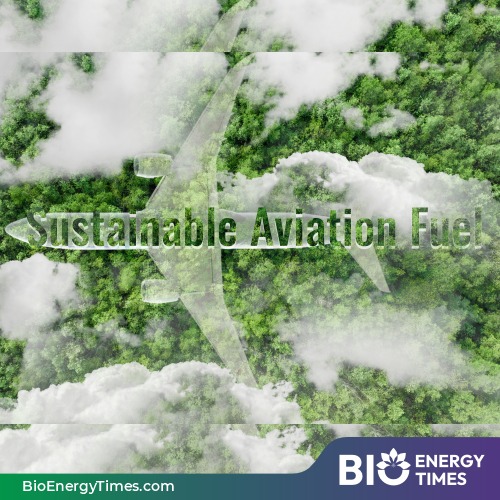International Airlines Group (IAG) and Microsoft have expanded their collaboration to reduce aviation-related carbon emissions by extending their 2023 sustainable aviation fuel (SAF) co-funding agreement by five more years. The extended partnership will see Microsoft co-fund an additional 39,000 metric tons of SAF, expected to cut approximately 113,000 metric tons of lifecycle carbon emissions, reports Ethanol Producer Magazine.
The agreement, described as the largest and longest Scope 3 SAF agreement on record, reflects growing momentum among corporate stakeholders to tackle indirect emissions across the aviation value chain. Scope 3 emissions refer to the carbon impact from activities not directly controlled by a company but still part of its supply and distribution networks.
Through this partnership, Microsoft will not only address emissions from employee travel but also emissions linked to transporting data center components by air. Meanwhile, IAG will be able to purchase more SAF, directly helping reduce its own Scope 1 emissions.
“We’re pleased to work with like-minded organizations such as Microsoft to expand efforts to reduce flying lifecycle emissions,” said Jonathon Counsell, IAG’s group sustainability officer. “Long-term agreements help encourage much-needed funding in SAF production, something that IAG is championing through our investment in global SAF projects such as LanzaJet.”
Julia Fidler, Microsoft’s lead for fuel and materials decarbonization, added, “We are taking our collaboration with IAG further, extending our SAF purchase agreement to bring Microsoft closer to our goal of being carbon negative by 2030, while ensuring a multi-year commitment to help drive greater SAF production.”
The SAF used in the partnership will be sourced from waste materials, including used cooking oil and food waste processed at Phillips 66’s Humberside refinery in the UK, as well as bioethanol produced at LanzaJet’s Freedom Pines Fuels facility in Georgia, USA. Both sources are certified by the International Sustainability & Carbon Certification (ISCC) system.
By the end of 2024, SAF accounted for 1.9% of IAG’s total fuel usage. The group has committed over $3.5 billion toward SAF purchases and future supply agreements. IAG continues to push for government policies that will accelerate investment in SAF production technologies.
The Microsoft Climate Innovation Fund, a $1 billion initiative aimed at advancing climate technologies, has previously invested in LanzaJet, whose Freedom Pines facility is the world’s first commercial-scale alcohol-to-jet SAF plant and will supply fuel to British Airways, part of the IAG group.
This extended agreement underscores how strategic partnerships between airlines and corporate clients can drive sustainability in aviation, supporting a broader shift toward clean energy and net-zero goals.
For detailed information and further insights, please refer to BioEnergyTimes.com, which provides the latest news about the Sustainable Aviation Fuel Industry















